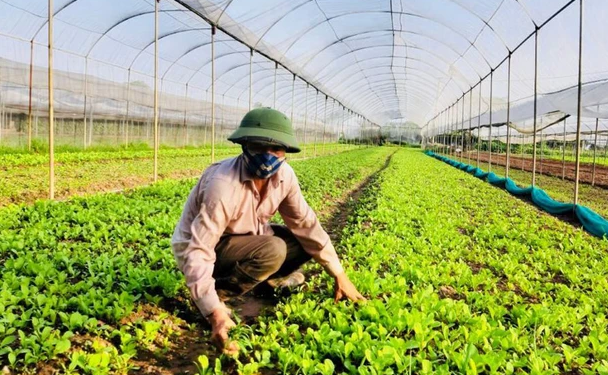#Agriculture #SustainableFarming #WinterCrops #MarketDemand #HanoiFarmers #CropDiversification #FarmIncome #VietnameseAgriculture
In the fertile fields of Mê Linh’s Đông Cao village, farmers employ staggered planting techniques, ensuring continuous harvests and mitigating risks. With a cultivation cycle of 30-50 days, each acre yields 6-8 tons of vegetables, generating incomes ranging from 8-15 million VND. The Đông Cao Agricultural Service Cooperative oversees approximately 200 hectares of diverse crops, involving around 800 households.
Heading southwest to Chương Mỹ, farmers have cultivated 1,750 hectares of winter crops, contributing to 89.7% of the plan. The district prioritizes diversification, with over 30 types of vegetables planted across 27 hectares to meet the demands of supermarkets, eateries, and schools in and around Hanoi.
To prevent overproduction and ensure market alignment, local authorities in Mê Linh and Chương Mỹ districts conduct surveys to gauge market needs, guiding farmers in strategic and timely planting. The districts encourage a phased approach to planting to avoid supply exceeding demand, especially for staple items like white radishes and tomatoes.
As part of Hanoi’s broader plan for the 2023-2024 winter season, a target of 28,512 hectares is set, focusing on new and short-duration crop varieties. The city aims to achieve 68.7% of this target by maximizing the cultivation of short-duration crops, responding to the heightened demand for agricultural products during the festive season.
The success of winter crop cultivation in Mê Linh and Chương Mỹ exemplifies the importance of sustainable and market-oriented farming practices. From staggered planting to strategic diversification, these efforts not only ensure a bountiful harvest but also contribute to the economic well-being of local farmers. As Hanoi focuses on increasing production and adapting to market needs, it sets the stage for significant growth in the agricultural sector, guaranteeing a stable supply of fresh produce for the capital’s residents.































